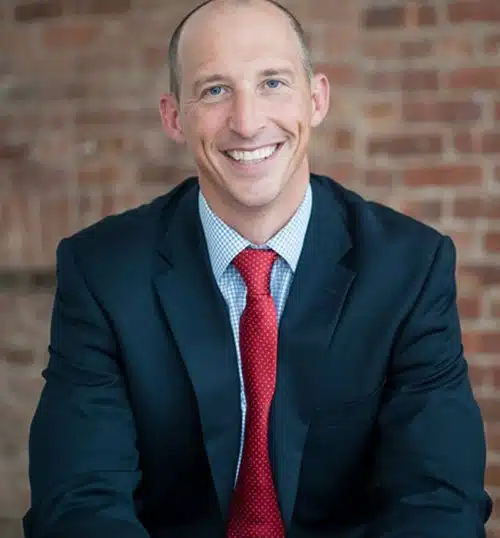In this video, Paul Sydlansky, CFP®, breaks down the basics of your balance sheet, or net worth statement, and how it serves as a cornerstone for personal financial planning. He explains the importance of understanding your assets and liabilities and how they influence your financial health and planning.
Topics Discussed:
- Understanding Balance Sheets
- Importance of Knowing Your Net Worth
- Breaking Down Assets and Liabilities
- How to Use Your Balance Sheet
Transcript:
Hi everybody. I’m Paul Sydlansky, CFP®, the founder of Lake Road Advisors and welcome to episode 6 of The Build, our 24 part series where we discuss all things financial planning, and take you through what it’s like to do your own financial plan with Lake Road Advisors. In today’s episode, we’re going to talk about your balance sheet and how you can build it to understand your current financial health.
You may have heard of the term balance sheet. Another way to think about it is your net worth statement. It’s simply the difference between your assets and your liabilities, which gives you a net worth. Everybody has a net worth—we all have limited resources that we can use to achieve our goals. But understanding where you stand and what your own balance sheet looks like is critical for building any type of financial plan.
So when you think about your own balance sheet, you start with your assets. These are the things you own, like your home, your cars, your bank accounts, your investment account. Assets represent one half of your balance sheet. The other side of the equation when it comes to your balance sheet is your liabilities. These are things that you owe. Think of your mortgage, your credit cards, your student loans, your car loan. The difference between these two amounts represents your net worth.
Like I said before, when it comes to financial planning, we all have a net worth, we all have limited resources that we need to consider when we plan for the future. Understanding your assets and liability are critical to understanding your health. Do you have a lot of assets and a little bit of liabilities? Do you have very little assets and a lot of liabilities? You first need to understand what position you’re in and where you want to go.
When we look at assets, we look for opportunities to make sure that we’re maximizing the use of them, that we’re diversified, and that we don’t have any overconcentration-specific areas, whether that’s a type of investment or maybe real estate in specific location.
When we look at liabilities, we’re checking for things like high levels of debt—so you have a lot of debt relative to either your income or to your assets. What does that debt look like? Is that debt at a high interest rate or a low interest rate, and then what type of debt because not all debt is created equal. If you have a mortgage at 3½% or 3%, that’s really not that bad of debt. And that’s historically a very low rate. However, if you have credit card debt at 20%, that’s a big red flag and that’s something that can eat away at your wealth creation over time.
If you don’t already know it on your own, take a few minutes to try to draw up your own balance sheet and see what your assets and liabilities and net worth look like.
If you have any questions on your own balance sheet, please don’t hesitate to reach out. We’re happy to help. If not we look forward to seeing you on our next episode of The Build.
Lake Road Advisors, a Fee-Only, independent financial planning firm with offices in Corning, NY, Ithaca, NY and Portland, OR works with clients virtually all across the country. Paul Sydlansky, the founder of Lake Road Advisors LLC, has worked in the financial services industry for 20+ years. Prior to founding Lake Road Advisors, Paul worked at Morgan Stanley in Manhattan for 13 years. While at Morgan Stanley, Paul was a senior-level manager within the Institutional Equities Department. In 2018 he was named to Investopedia’s Top 100 Financial Advisors list. Paul received a Bachelor’s degree in Economics from Marist College and holds an MBA from New York University Leonard N. Stern School of Business. Paul is a CERTIFIED FINANCIAL PLANNER™ and a member of the National Association of Personal Financial Advisors (NAPFA) and the XY Planning Network.
The information provided is for educational and informational purposes only and does not constitute investment advice and it should not be relied on as such. It should not be considered a solicitation to buy or an offer to sell a security. It does not take into account any investor’s particular investment objectives, strategies, tax status or investment horizon. You should consult your attorney or tax advisor.




